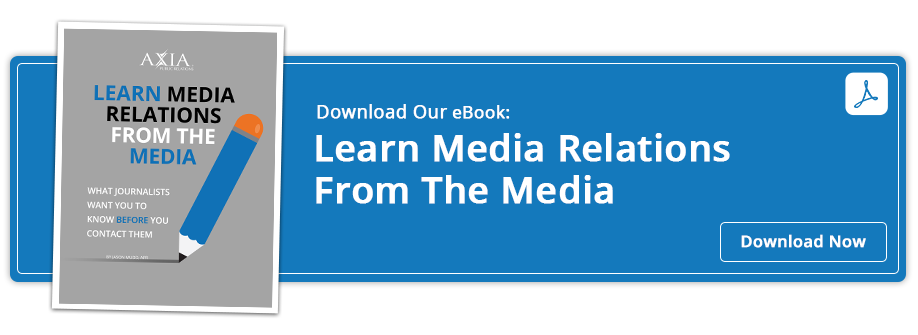 PR advice to help you determine which is right and how to prepare
PR advice to help you determine which is right and how to prepare
Perhaps your company is in the midst of a crisis. Or maybe there is a major story breaking that involves your industry. Whatever the reason, members of the media are calling and clamoring for information from your company. Should you grant interviews? Hold a news conference? Or can you simply issue a statement?
Other than public relations professionals, very few people are completely comfortable talking to the media. Writing down what you want to say and then just sending it to reporters is a solution that seems almost too good to be true. Still, there are times when an interview or news conference may be a smarter choice. These PR tips can help you decide whether you should issue a statement or give media interviews – and how to handle each option.
Circumstances that might call for a news conference or media interview:
- You need to provide more information than what is possible in a brief written statement.
- Journalists from multiple outlets are calling, and you want to ensure that they all get the information at the same time.
- You have breaking news to share.
- There are many people or organizations contributing to the news, such as your company, government officials and community organizers.
Tips to keep in mind when planning a news conference
- Know the schedules and deadlines of the media you invite and plan your event accordingly.
- Have only well-trained spokespeople accustomed to dealing with the media at the microphone.
- Make sure you have supporting material that reporters can use as background.
When it’s ok to issue a statement:
- Everyone knows the basic facts of the story and you simply need to give information concerning your company’s involvement or point of view.
- You are not quite ready for an interview. Giving an informative statement allows you to respond immediately and demonstrates that you are working on the issue, but gives you time to gather accurate information and schedule a news conference if necessary.
- The issue does not warrant a slew of media interviews or full-blown news conference.
Tips for writing an effective statement
- Remember that you are still on the record.
Anything you write will be considered the same as a direct quote from your CEO or spokesperson. Consequently, you should write it in first person, using a conversational tone.
- Keep it short and simple.
Your statement should be no longer than a few paragraphs or half page. Understand that the media will probably not use the whole statement, so make sure that every sentence can be used as its own statement.
- Use the right wording.
Stay positive and don’t be afraid to show empathy, especially if your company is at fault. Avoid being confrontational, placing blame on others or making ambiguous comments.
- Don’t forget your contact information.
Your written statement may not always get the media off your back entirely; it might only buy you some time. Therefore, you should include phone numbers and other ways for journalists to reach you for follow-up questions.
- Take a deep breath and let your PR firm handle your media relations issues.
It’s easy to get flustered and confused when reporters are breathing down your neck. You may think you need to react right away and do whatever they ask. Instead, slow down and call a PR firm.
At Axia Public Relations, we specialize in media relations and have excellent working relationships with journalists. When you join our team, you get a well-connected PR partner that can handle any new or traditional media issue to help protect your reputation and brand. Contact us or download our e-book Learn Media Relations from the Media to find out more.

 Lisa Goldsberry is a blogger for Axia Public Relations with more than 15 years of public relations experience. She specializes in business and technology PR. Lisa has worked for Axia since December 2013. Learn more about Lisa Goldsberry. Connect with Axia on Twitter @axiapr or tell us what you think in the comments below.
Lisa Goldsberry is a blogger for Axia Public Relations with more than 15 years of public relations experience. She specializes in business and technology PR. Lisa has worked for Axia since December 2013. Learn more about Lisa Goldsberry. Connect with Axia on Twitter @axiapr or tell us what you think in the comments below.
Featured image credit: 123rf.com
Topics: media relations, public relations


Comment on This Article